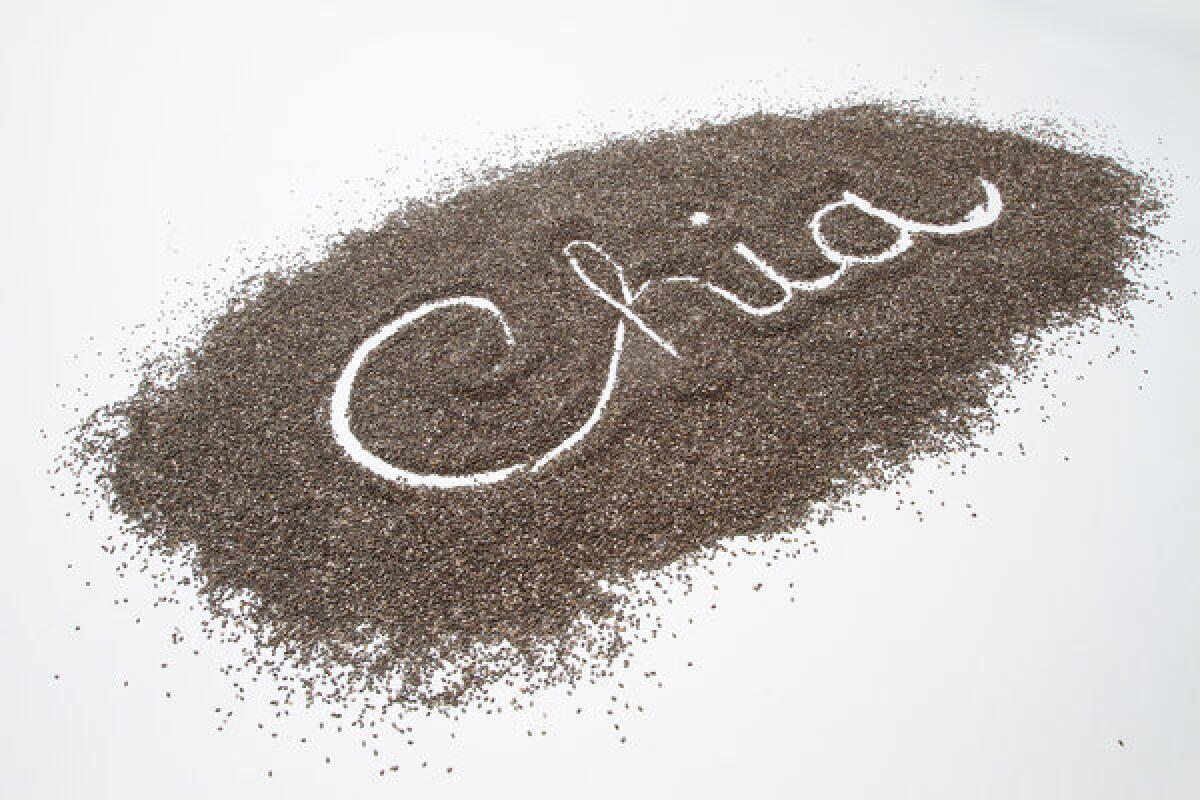Chia seeds are popular again — this time for nutrition

- Share via
From kitschy gift to kitchen darling, chia is having another 15 minutes of fame. And this time, it’s not slathered on clay “pets.”
Chia seeds have become popular for their omega-3 fatty acids and fiber content. With their neutral taste, they can be consumed in many ways — now they’re even showing up in processed foods such as chips and spreads.
Eaten by the Maya and Aztec people, chia seeds have long been reputed to be nutritional powerhouses.
“They were basics when we grew up,” says Ramiro Arvizu, a chef at La Casita Mexicana in Bell. “Now it’s becoming a fashion, and I love it.”
His restaurant has served lemonade with chia seeds for more than a decade, says Arvizu, whose grandmother made him a similar drink in his childhood. The seeds become gelatinous when soaked in liquid, sort of like tapioca.
At Juan’s Restaurante in Baldwin Park, owner-chef Juan Mondragon focuses on the foods of ancient Mexico. In one popular dish, he coats salmon with chia seeds before grilling.
In 2009, a book by Christopher McDougall called “Born to Run” focused on the reclusive Tarahumara Indians of Mexico — long-distance runners who consume chia in food and drinks. And the seeds remain popular among runners. Last week, Business Week magazine reported that “among Wall Street’s trading desks and bullpens, chia seeds are becoming the stimulant of choice.” They are, the magazine said, “healthier than coffee, cheaper (and obviously more legal) than cocaine, and less juvenile than a 5-hour Energy drink.”
“More and more, people in this iPad, junk food way of living … [are] looking for some way to live healthier and create some balance and relying on foods” that cultures ate thousands of years ago, says John Roulac, founder of Nutiva, a company based in Oxnard that sells chia products.
Demand has grown fivefold this year, he says. “Dr. Oz’s megaphone” didn’t hurt, adds Roulac, who recently returned from a trip to South America to meet with farmers and government officials about chia crops.
Whole Foods has been selling chia seeds for five years as a niche product, but recently sales have boomed, says Jeremiah McElwee, the company’s global whole body buyer. At home he mixes chia seeds into his children’s oatmeal.
A tablespoon of the seeds has 60 calories, 5 grams of fiber, 3 grams of protein and 3 grams of fat. Online, they’re about $10 a pound.
David Nieman of Appalachian State University in Boone, N.C., who has conducted several studies of chia seeds, in part funded by Dole Food Co., says chia seeds are not the magic that will keep people Olympian strong and model slender while they live like couch potatoes. Exercise and a good diet still are key. Nevertheless, he says, “chia is a lot of nutrition in a little package.”
More to Read
Sign up for The Wild
We’ll help you find the best places to hike, bike and run, as well as the perfect silent spots for meditation and yoga.
You may occasionally receive promotional content from the Los Angeles Times.







